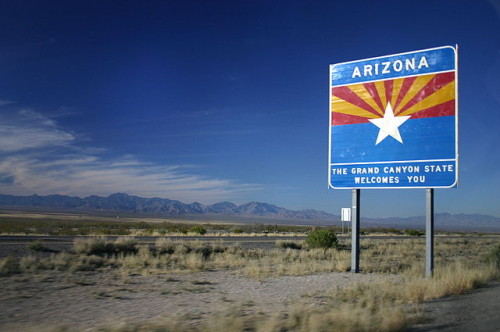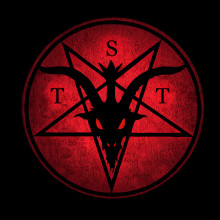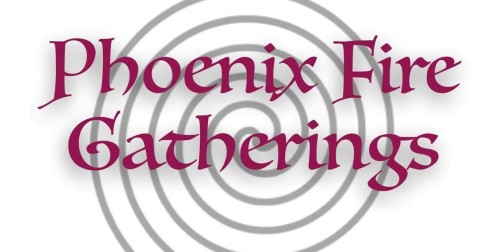PHOENIX, Ariz. — In January, The Satanic Temple of Tuscon was given the co-ahead to offer an invocation before the Feb. 17 Phoenix city council meeting. When the news was made public, there was an immediate backlash led by council member Sal DiCiccio of District 6. On Jan 28, DiCiccio tweeted, “Another dumb idea by the City of #PHX. Satanists are set to deliver the invocation at the Feb 17th Council meeting.” But the invocation was never to be. In less than one week, the city council was forced to directly address the issue and vote on whether or not to allow legislative prayer.

[Photo Credit: Wing-Chi Poon / Wikimedia]
There’s certainly no novelty at all to a Christian invocations, and nobody is at a loss to find Christian houses of worship, if they so choose. Satanism, on the other hand, is still largely a mystery to the general public. When public forums allow for religious displays or performances, they do so to our advantage. We’re grateful for Phoenix’s public platform for Satanists, and I believe the people of Phoenix can expect us to be regular contributors to their religious milieu — thanks, in part, to their City Council.
When the news was announced, council member Sal DiCiccio along with fellow council members Jim Waring, Bill Gates, and Michael Nowakowski expressed their astonishment and spoke out against this decision. DiCiccio tweeted, “Political correct PHX pushing satanist to speak at city invocation about to get pushed out. This is not about ‘diversity’ but about stupidity.” He and several others also maintain that The Satanic Temple is not a religion. “It is a cult,” they added.
The four council members launched a public campaign to put an end to TST’s invocation and issued a request for the city council to consider an emergency measure. The new motion was added to the Feb. 3 meeting agenda, and it recommended the adoption of a new rule that would require all volunteers offering prayers to be residents of Phoenix. In addition, council members would have to personally endorse any proposed speakers before they were allowed to be put on the official schedule.
Politicians pushing Satanic Prayer for “diversity and inclusivity,” about to get pushed back https://t.co/OoY6byE39H pic.twitter.com/6qgcXY8tko
— Sal DiCiccio (@Sal_DiCiccio) January 30, 2016
In reaction, The Satanic Temple simply said, “game on.” And then later, the group threatened a lawsuit against the city should it cancel the TST invocation. The organization responded directly to DiCiccio, saying, “This is what Religious Liberty looks like when you open the forum, Councilman. Little Civics Lesson.”
In the wake of this conflict, the Freedom from Religion Foundation (FRFF) got involved, sending a letter on Feb. 1 to Phoenix Mayor Greg Stanton. It read, in part:
I am writing on behalf members of the Freedom From Religion Foundation, including Phoenix members, to object to proposed changes to the prayer policy for Phoenix City Council meetings and explain why those changes are illegal […] This rule change is discriminatory in both intent and effect. Regardless of the legality of the rule itself, the change was proposed to keep out one particular religion. That is discrimination.
Both FRFF’s letter and press release refer to the 2014 case of Greece v. Galloway, saying “[Staff Attorney Andrew] Seidel cites the Supreme Court’s May 2014 government prayer case, which he says holds ‘a local government must open its prayers to all comers, including atheists, agnostics, Wiccans, and Satanists.’ ” The Supreme Court ruling made it legal to offer religious invocations before legislative meetings. However, this opportunity must be open to everyone, of all religions and no religion. The court’s opinion read that “no violation of the Constitution has been shown” in the offering of prayer. It stated,
Ceremonial prayer is but a recognition that, since this Nation was founded and until the present day, many Americans deem that their own existence must be understood by precepts far beyond the authority of government to alter or define and that willing participation in civic affairs can be consistent with a brief acknowledgment of their belief in a higher power, always with due respect for those who adhere to other beliefs. The prayer in this case has a permissible ceremonial purpose. It is not an unconstitutional establishment of religion.
While the justices acknowledged the importance of ceremonial prayer within a community environment, they did so with the understanding that these religious invocations would never be used to “exclude or coerce nonbelievers.” FRFF held that DiCiccio’s proposed rule would do just that, “exclude nonbelievers” making it unconstitutional.
 On the afternoon of Feb. 3, the City Council convened its scheduled meeting. Included on the agenda was the proposed new rule on legislative prayer. When the item was brought to the floor, council member Thelda Williams interjected, offering a counter proposal that would allow for a moment of silence in lieu of any type of spoken prayer. This changed the conversation considerably. DiCiccio tweeted from inside the meeting: “Satanists to get Big Win if
On the afternoon of Feb. 3, the City Council convened its scheduled meeting. Included on the agenda was the proposed new rule on legislative prayer. When the item was brought to the floor, council member Thelda Williams interjected, offering a counter proposal that would allow for a moment of silence in lieu of any type of spoken prayer. This changed the conversation considerably. DiCiccio tweeted from inside the meeting: “Satanists to get Big Win if #PHX Mayor and Council Sneak Last Minute Proposal Banning Prayer.”
Beginning the testimony were three state representatives, two of which supported DiCiccio’s new rule calling on the need to keep God and religion in government. The third speaker, Rep. Kelly Townsend, offered her support of legislative prayer, but said that it does need to be inclusive. She noted that this method works peacefully in the Arizona State Legislature.
After the representatives spoke, there was a string of citizens offering their own testimony. The majority identified themselves as Christian and strongly supported DiCiccio’s new rule, arguing everything from “We are a nation under God” to “We don’t want the wrong kind of prayers.” There were several atheists, one agnostic, two people who identified as Jewish, a handful of Christians, who spoke in favor of the moment of silence. One man, Blue Crowley, who said that his brother was a “Magus of the Temple of the Golden Dawn,” spoke out passionately in support of the moment of silence, saying he knows Sikhs, Druids, and more. He was cut off, and did not get to finish his speech. Nobody from The Satanic Temple itself spoke.
After the long list of speakers, City Attorney Holm clarified the city’s legal risks if it chose to cancel the TST prayer. He stated clearly that changing the invocation rules after TST was already on the schedule would be considered an “unconstitutional suppression of a minority religious viewpoint,” and in violation of the Constitution. The mayor then clarified, saying that in adopting the original proposal and canceling TST’s invocation the city would be put in “legal hot water.”
In the end, the city adopted the moment of silence by a vote of 5-4. FRFF Attorney Seidel tweeted out, “Win! Looks like Phx City Council voted to have a moment of silence from now on.” TST Spokesperson Lucien Greaves said, “We’ll take it.”
Phoenix resident Mark Bailey wasn’t surprised by the backlash or the ruling. Bailey is a local Druid and founder of the Phoenix Fire Gatherings. He said that the Phoenix community is religiously diverse and the council doesn’t truly represent the people. He said they are “completely out of touch with their voting constituency.” His remarks are corroborated by comparative data offered by Pew Forum. The City of Phoenix has a lower percentage of Christians (66%) than the overall country average (70.6%). And, the city has a higher rate of “nones” (26%) and non-Christians (7%) than the U.S. average.
 As an example, Bailey added, “Phoenix has one of the largest Pagan/ Heathen/ Druid populations in the Southwest. The Fire Gatherings alone attract 500-750 Pagan attendees twice a year alone…more than any other Pagan event in the Valley.” Due to this theoretical discrepancy between the population and its representatives, Bailey believes that TST was “wasting its time trying to do the invocation and the City Council’s reaction was expected.”
As an example, Bailey added, “Phoenix has one of the largest Pagan/ Heathen/ Druid populations in the Southwest. The Fire Gatherings alone attract 500-750 Pagan attendees twice a year alone…more than any other Pagan event in the Valley.” Due to this theoretical discrepancy between the population and its representatives, Bailey believes that TST was “wasting its time trying to do the invocation and the City Council’s reaction was expected.”
Bailey’s point would be correct if The Satanic Temple’s goal was ultimately to give the invocation. However, as Greaves suggested, the moment of silence was as much of a win as having offered the prayer itself. In both cases, Constitutional law is upheld. All or none, as it goes.
The side note, and one to watch, for Pagans, Heathens and Polytheists is the discrepancy in the public reaction to a Wiccan invocation and a Satanist one. In the past several years, there have been multiple Wiccan invocations given before state legislatures (e.g., Iowa and Wisconsin) school board meetings (e.g.,Escambia Cty, FL and Cleveland Cty, NC) and town meetings (e.g., Huntsville, AL). While Wiccans do still create controversy, officials seem to overcome the discomfort and move forward with making inclusive invocations work, as defined in the Greece v Galloway ruling. This does not appear to be the case for The Satanic Temple. The reaction to TST resembles what might have happened to Wiccans thirty years ago. Times do change.
Since the Phoenix city council ruling, The Satanic Temple has not missed a step. The group recently announced that it is now on the schedule to give an invocation at the Apr 15 Scottsdale city council meeting. Scottsdale is only 9 miles northeast of Phoenix, so people in that region have not necessarily seen an end to this discussion. In addition, there are reports that TST has also requested to offer prayers before the councils in the cities of Sahuarita, Chandler, and Tucson. This story only continues.
The Wild Hunt is not responsible for links to external content.
To join a conversation on this post:
Visit our The Wild Hunt subreddit! Point your favorite browser to https://www.reddit.com/r/The_Wild_Hunt_News/, then click “JOIN”. Make sure to click the bell, too, to be notified of new articles posted to our subreddit.

The quote,”completely out of touch with their voting constituency,” seems to rampant among all facets of American government these days.
Yes – regardless of which of the 2 major parties is being discussed!
I suggest the apparent change in reaction to Wiccan invocations is purely one of education. Thirty years ago they thought Wicca was Satanism. They still have the same reaction to Satanism; they have learned to differentiate it from Wicca.
This story was fun to read as well as informative.
I’m not a Satanist, but I love the TST!
The Satanists have been very useful to the cause of freedom of religion and I do respect them for that.
I truly love these events. It’s a great opportunity to get on local discussion boards, write to the local newspapers and remind the inhabitants that Christianity and Satanism are the same religion. Same ‘pantheon’ of deities. When Christians pray that they will someday go to heaven when they die they’re also praying to Satan to spare as surely as they’re praying to Yahweh or whatever they call him, to take them in and spare them from Satan’s clutches. The Christians do seem to enjoy hearing this ever so much.
Except that’s not how prayer works. A prayer to Yahweh isn’t a prayer to Jesus, Satan or Mary, unless those entities are also named. It doesn’t matter how they’re related. Likewise, a prayer to Zeus isn’t also prayer to Hera, Poseidon, Athena and Hades, because they all share the same mythological space. If it was, no one would bother naming multiple gods in single-pantheon polytheist rituals.
The last mention of Hell I heard in a Christian worship context was a Lutheran funeral 50+ years ago, singing A Mighty Fortress, but it wasn’t a prayer to Satan for the deceased to be spared; rather, a prayer to God to keep the deceased away from Satan.